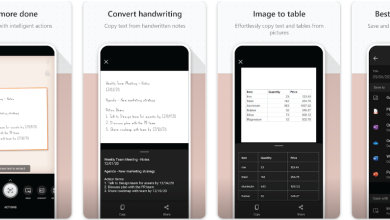Severe Test Anxiety: What It Means and How to Get Help

You’ve studied hard, made sure to sleep and eat well, and aced a few practice tests. But when you finally sit down to take the exam, your hands get sweaty, your heart starts racing, your vision gets blurry, and you’ve lost the ability to think.
You look at the first question. You know you know the answer. You’ve already answered the same question on a practice test. But you cannot, for the life of you, remember the answer. You can’t even remember how to properly hold your pen. Maybe you feel like you’re dreaming, like nothing is real, or like you’re watching yourself from above.
Has something like this happened to you in the past? If so, you may have experienced something more than test jitters. You may have experienced severe test anxiety.
Test Jitters vs Test Anxiety
The main difference between test jitters and test anxiety is that the jitters are normal, even healthy, and don’t interfere with your performance. Test anxiety, by contrast, is unhealthy and can seriously impede your ability to perform in important grade 12 online courses or courses at the post-secondary level.
Test anxiety is a type of performance anxiety and can manifest in a variety of ways. Students who already struggle with anxiety and students with perfectionist tendencies are more likely to experience test anxiety, but virtually anyone can experience it at some point in their lives.
If you feel like you’re dreaming or like nothing is real when you take a test, you may be experiencing one of two extreme symptoms of test anxiety: depersonalization or derealization.
Derealization vs Depersonalization
Derealization and depersonalization are both episodic in nature, meaning they tend to come and go.
When you experience derealization, you may feel as though something is wrong with reality, or as though the world outside yourself is not real. Objects may suddenly seem fake or uncanny. People, even people you know, may appear unfamiliar, alien. Sounds may be distorted or too loud. Time may feel sped up or slowed down.
When you experience depersonalization, by comparison, you may feel as though you’re outside yourself, looking down on your life. Your body and thoughts may seem unfamiliar, or you may feel like you’re living in a dream.
During either experience, you never lose touch with reality. Rather, you are aware that you are experiencing something unusual or unsettling.
Note: the fact that you experience derealization or depersonalization does not necessarily mean you have either derealization or depersonalization disorder, two kinds of dissociative disorders.
Help
If you experience derealization or depersonalization when you take tests, it likely means you experience severe test anxiety. If so, seeking help is a good idea. Sever test anxiety is not only uncomfortable and disturbing, but it can also interfere with your ability to perform on tests.
It’s important that you not be afraid or ashamed to speak up if you experience severe test anxiety. Doing so is the first step to getting help, feeling better, and doing better on tests. If you speak to a doctor, your conversation will remain confidential, and they may show you how to get treatment.
There are a variety of treatment options for severe test anxiety. Talk therapy and medication are only two.




